The REDS research project has transformed transfusion medicine, and the REDS-IV-P phase co-chairs say the best is yet to come!

Drs Steve Kleinman & Cassandra Josephson
REDS-IV-P Moves Us Forward
Drs. Steve Kleinman and Cassandra Josephson are the co-chairs of the current phase of REDS, known as “REDS-IV-P” (and don’t worry, we will explain what “REDS” stands for!). Both of these physicians feel that REDS-IV-P is ushering in a new phase, and that breakthroughs that change transfusion medicine again are just around the corner! In this interview, we will take a little bit of time to understand where REDS has been and where REDS-IV-P is taking us.

Drs Steve Kleinman & Cassandra Josephson
REDS-IV-P Moves Us Forward
Drs. Steve Kleinman and Cassandra Josephson are the co-chairs of the current phase of REDS, known as “REDS-IV-P” (and don’t worry, we will explain what “REDS” stands for!). Both of these physicians feel that REDS-IV-P is ushering in a new phase, and that breakthroughs that change transfusion medicine again are just around the corner! In this interview, we will take a little bit of time to understand where REDS has been and where REDS-IV-P is taking us.

About My Guest:
Dr. Steve Kleinman is Clinical Professor of Pathology at the University of British Columbia. He is also President of Kleinman Biomedical Research, a transfusion medicine consulting company. He currently cochairs the Steering and Executive Committees of the NHLBI-sponsored “Recipient Epidemiology and Donor Evaluation Study-IV” (REDS-IV-P) and from 2011 through 2019 served as Chair in the predecessor program (REDS-III). He has previously served as Senior Medical Advisor to AABB from 2005 through 2019 and prior to that chaired the AABB Transfusion Transmitted Disease Committee. He has published over 175 peer-reviewed scientific articles, 20 book chapters, and co-edited two textbooks. He currently co-edits the transfusion medicine section of UpToDate, an online medical resource.
Dr. Kleinman’s main interest is the intersection of scientific investigation and policy development in the field of transfusion safety and emerging pathogens. His publications address a wide array of infectious agents (e.g., HIV, HCV, HBV, WNV, Dengue virus, Zika virus, and other emerging pathogens) and span the realm of basic science research, the epidemiology of infectious agents and modeling their transfusion transmission risk, laboratory test performance as applied to donated units of blood, and pathogen inactivation of blood components.
Dr. Cassandra Josephson is, as of July 1, 2022, the Hawkins Family Endowed Professor and Director of the Cancer and Blood Disorders Institute (CBDI), Clinical Division Director for Hematology/Oncology, Medical Director of Transfusion Medicine, at the Johns Hopkins All Children’s Hospital in St. Petersburg, Florida. She is also Professor (PAR) in the Department of Oncology at the Johns Hopkins School of Medicine.
Dr. Josephson’s research career focuses on pediatric transfusion medicine and, more specifically, transfusion therapy in neonates, patients with sickle cell disease and thalassemia, and massive transfusion in children with hemorrhage. She currently and previously garnered grants from National Institutes of Health, CDC, industry and private foundations where she is or has been the Principal Investigator. Dr. Josephson is actively involved in teaching medical students, residency, and fellowship trainees in pathology and pediatrics. She has authored or co-authored >180 publications in peer-reviewed journals, 17 review articles, and > 15 book chapters. She is one of the Co-Chairs for the REDS IV-P Program evaluating Recipient Epidemiology and Donor Evaluation of Blood Products and Transfusion in the US and Brazil focused on Children. She also services as an Associate Editor for Transfusion, the journal of the American Association of Blood Banks (AABB).
FREE Continuing Education!
This podcast episode offers a FREE continuing education activity where you can earn two different types of credit: 1 AMA PRA Category 1 CreditTM, or 1 ASCLS P.A.C.E.® Contact Hour (including Florida Clinical Laboratory Credit). This activity also may be used to fulfill Lifelong Learning Continuing Certification requirements for the American Board of Pathology.
To receive credit and review the accreditation information and related disclosures, please visit Transfusion News Continuing Education on Wiley Health Learning.
Please note: Continuing education credit is available for two years from the date this episode was released. In other words, you will no longer be able to claim credit for this episode after July 17, 2024.
DISCLAIMER: The opinions expressed on this episode are those of my guests and I alone, and do not reflect those of the organizations with which any of the three of us is affiliated.
Further Reading:
- Original REDS: Zuck, TF et al. The Retrovirus Epidemiology Donor Study (REDS): rationale and methods, Transfusion 1995;35:944-951
- REDS-II: Kleinman S et al. The National Heart, Lung, and Blood Institute Retrovirus Epidemiology Donor Studies (Retrovirus Epidemiology Donor Study and Retrovirus Epidemiology Donor Study-II): Twenty Years of Research to Advance Blood Product Safety and Availability. Transf Med Rev 2012;26:281-304.e2
- REDS-III: Kleinman S et al. The National Heart, Lung, and Blood Institute Recipient Epidemiology and Donor Evaluation Study (REDS-III): a research program striving to improve blood donor and transfusion recipient outcomes. Transfusion 2014;54:942-955
- REDS-IV-P: Josephson CD et al. The Recipient Epidemiology and Donor Evaluation Study-IV-Pediatric (REDS-IV-P): A research program striving to improve blood donor safety and optimize transfusion outcomes across the lifespan. Transfusion 2022;62:982-999
Thanks to:
- Naomi Suguitan, BBGuy Assistant
Music Credit
Music for this episode includes “Cuando te invade el temor” and “Reflejo,” both by Mar Virtual via the Free Music Archive. Click the image below for permissions and license details.




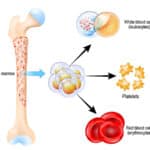

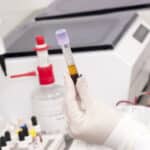



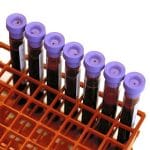

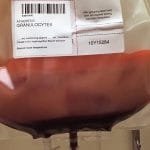
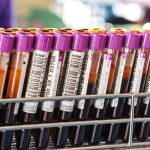
Got to understand how REDS give an insight on evolution of transfusion medicine. Thanks.
It took a few attempts to get through this podcast, lots of exciting research.